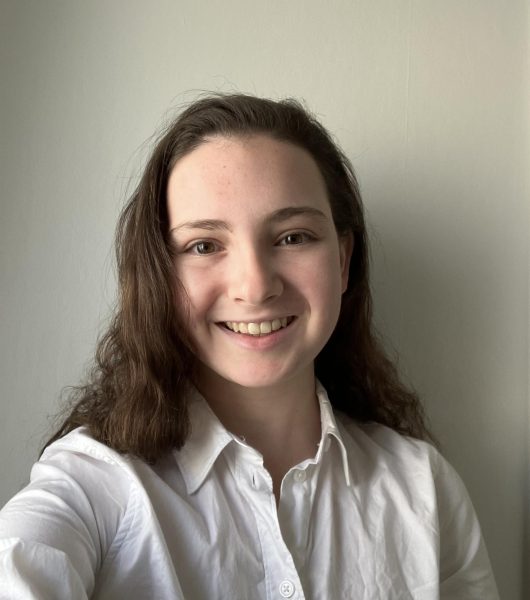Hey, there! We’re Giuseppe and Ilena, soon-to-be graduates from Sequoyah and Westridge, respectively. When we share our college plans, we’re often met with raised eyebrows and skeptical questions. We sat down to discuss why we won’t, in fact, be broke, and to impart our hard-earned wisdom to the next generation of college applicants.
The conversation has been edited for length and clarity.
Ilena: When I tell people what I’m studying, the first reaction I tend to get is, “Why are you blowing all of your money on a humanities degree?” I’m curious to hear your take on that.
Giuseppe: Two words: law school. Also, an MPP: Masters in Public Policy. Also, a career in national security. Maybe more than two words? Frankly, studying humanities isn’t useless—if you have a plan. Personally, I plan on double-majoring in Religious Studies and Political Science, but I also plan on earning a fifth-year Master’s in Public Policy in Global Affairs from the Yale Jackson School. Religious Studies in its own right isn’t the most lucrative or practical major. But understanding how religion fits into international politics is a way of getting my foot in the door as a congressional staffer, federal employee, or think-tank researcher.
Ilena: Personally, I take a more holistic approach. From a philosophical perspective, the liberal arts offer exposure to a wide range of subjects, all with the intention of shaping critical thinkers with cultural competence and—theoretically—an ability to understand and empathize with diverse perspectives. That’s why I want to study History—not for law school, but for utilizing our shared past to bridge divides in a polarized world. Practically, the writing, thinking, and analytical skills gained from a humanities degree make you a versatile job candidate. In today’s rapidly changing job market, where career paths aren’t necessarily linear, the humanities equip you with highly-valued adaptability. And, though admittedly coming from someone who plans never to take a math class again, combining a STEM degree with a humanities double major or minor can set you apart from other candidates in competitive tech jobs by showcasing wide-ranging skills. A history degree might not set you up for a career in one specific industry, but that’s the beauty of it—the discipline opens many potential doors.
Giuseppe: Let’s talk about college applications. What do you wish you knew when you were applying to college?
Ilena: I honestly feel really good about my process! I started super early—writing essays over the summer and applying early action to over a dozen schools—and I don’t regret it one bit; getting a head start gave me a sense of security early on and allowed me to just enjoy senior year. Admittedly, I came into the process with a very clear picture of the kind of experience and academic programs I wanted, which made it pretty simple to hone in on specific schools. I applied to several large, public universities, most of which had pretty standardized supplemental essay questions, so I was able to save time with a lot of copy-and-pasting. I know it’s easier said than done, but the most reassuring thing is making peace with the absurdity of the college admissions game. Some schools just desperately need an oboe player from North Dakota—that’s not me, and that’s okay.
Giuseppe: I knew that a school with a strong alumni network and tradition of leadership would be a solid way to get my foot in the door for a political career. What I didn’t realize is that “leadership” is often just another word for “elitism.” Not invariably—love ya, Swarthmore—but the two are frequently linked. There are two problems with attending colleges with a different value set from yours: First, you will frequently be forced to choose between your values and “going along to get along.” Choose your values and a chasm develops. Choose “going along” and your ethical code starts to disintegrate. Second, many of your classmates will share wildly different values. On one hand, this is good—it promotes open debate and gives you a better education—but if taken too far, it can again lead to a sense of ostracization. I wish I knew that I’d have to make trade-offs and sacrifice certain “priorities” for others.
Ilena: I didn’t really give any consideration to geography during my search—much to my parents’ disappointment—and I get the sense you didn’t, either.
Giuseppe: I think our peers should try to exclude geography from their college calculations. Many of my classmates dreamed of going to an ivy-covered East Coast liberal arts college with Harry Potter vibes and hefty price tags. There are other options! Excellent, academically-rigorous liberal arts schools can be found in every part of the country, from the gorgeous hills outside of Santa Fe, New Mexico to the urban streets of Jackson, Mississippi. These colleges can offer a unique experience in a different climate or part of the country. It’s easy to turn up our noses at Middle American “flyover states.” Actually spending time there can break our stereotypes.
Ilena: So you say, Mr. Yale.
Giuseppe: You don’t get to attack me for going to an Ivy League.
Ilena: I know what you mean. And I think something I’ve learned is that you don’t have to travel across the continent to visit every school on your list. It’s more about getting a feel for each “type” of school—big, small, urban, rural, liberal arts, research, etc. You can find schools that check all of those boxes within an hour of Pasadena. When decisions come back and you narrow it down to a few serious contenders, that’s when you consider booking flights to Middlebury or Madison. Because, like you mentioned, school culture matters a lot. And witnessing it for yourself can make all the difference.
Giuseppe: I really mean it—you can’t underestimate public universities. I know that in our social sphere it can be easy to write off public colleges and lesser-known universities. That is a mistake. In reality, virtually every state flagship university has a unique, academically rigorous, and somewhat niche program. I applied to the University of Mississippi early. I was admitted to the Barksdale Honors College, Southern Studies program, and Croft Institute for International Studies, and earned a generous scholarship. All students—especially those applying to highly selective colleges—should apply to an excellent public university in the early round.
Ilena: If you go into the process knowing what you want to study—like we did—the key is to focus on the quality of the program rather than the school. I had no interest in Mississippi’s Southern Studies, but the University of Pittsburgh—which operates on a rolling admissions schedule—has a surprisingly spectacular history program, and employers know to look for the specific program’s ranking, reputation, and scholarship rather than that of the institution as a whole.
Giuseppe: You just have to be smart in your approach. Grades do matter, and college admissions officers can tell if you wrote your essay the night before it was due.




























![Dr. Zanita Kelly, Director of Lower and Middle School, pictured above, and the rest of Westridge Administration were instrumental to providing Westridge faculty and staff the support they needed after the Eaton fire. "[Teachers] are part of the community," said Dr. Kelly. "Just like our families and students."](https://westridgespyglass.org/wp-content/uploads/2025/03/dr.-kellyyy-1-e1748143600809.png)






























